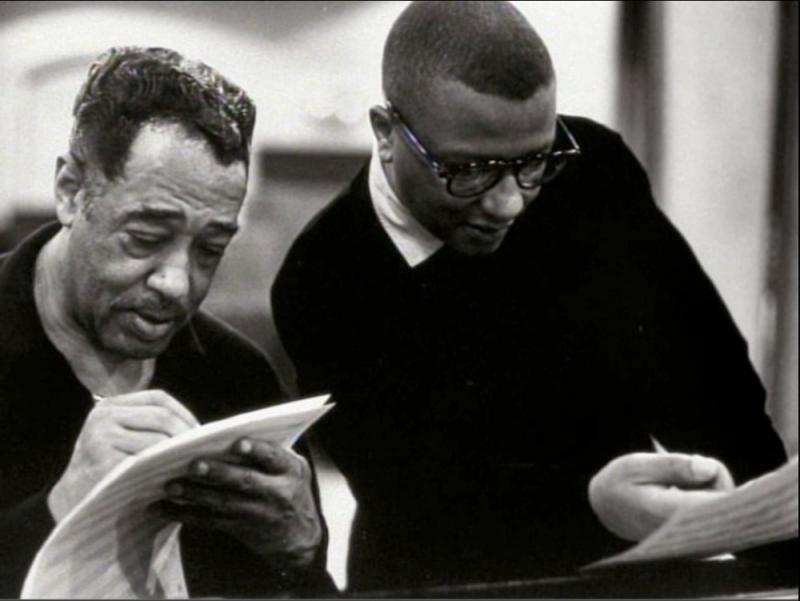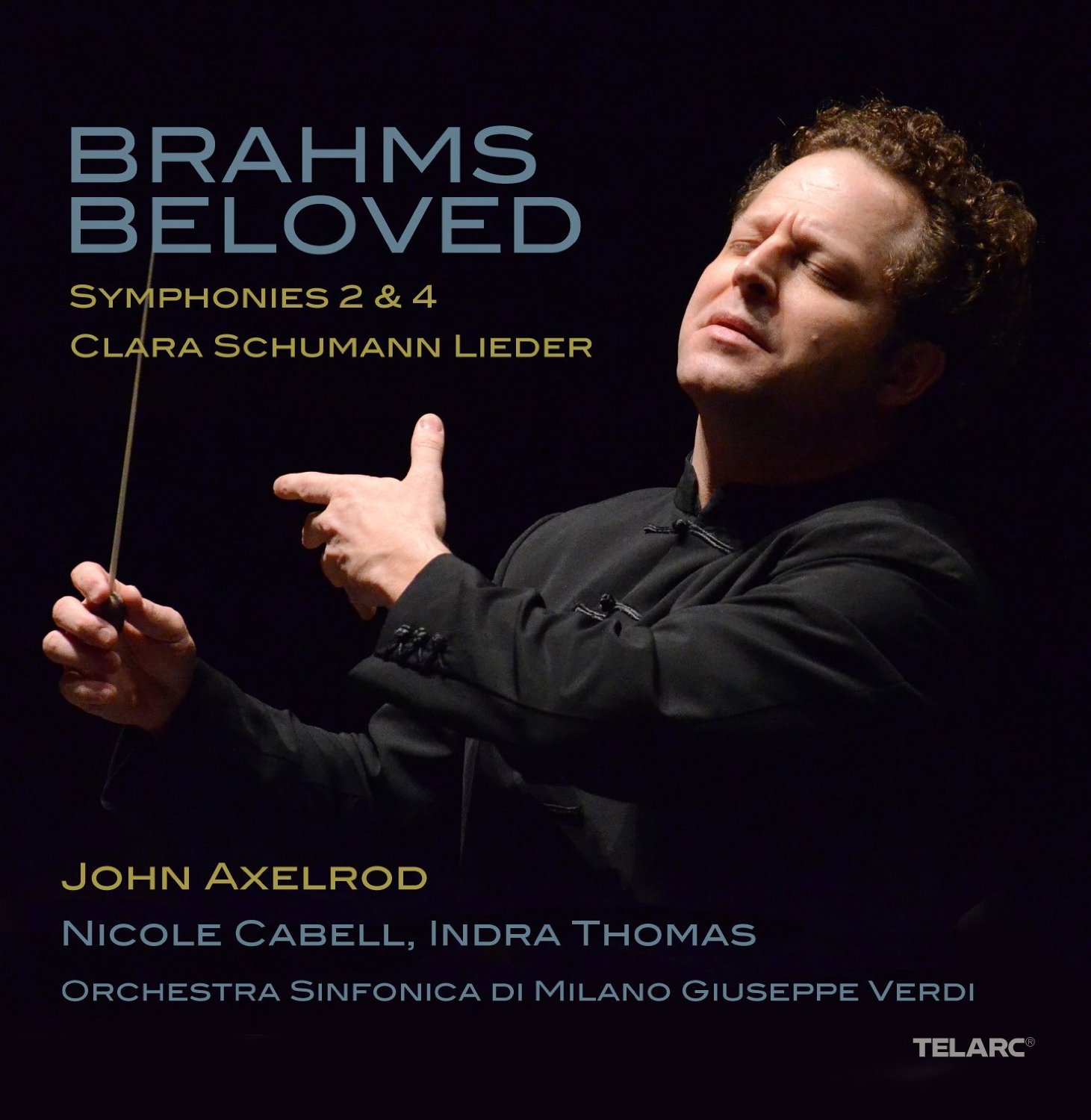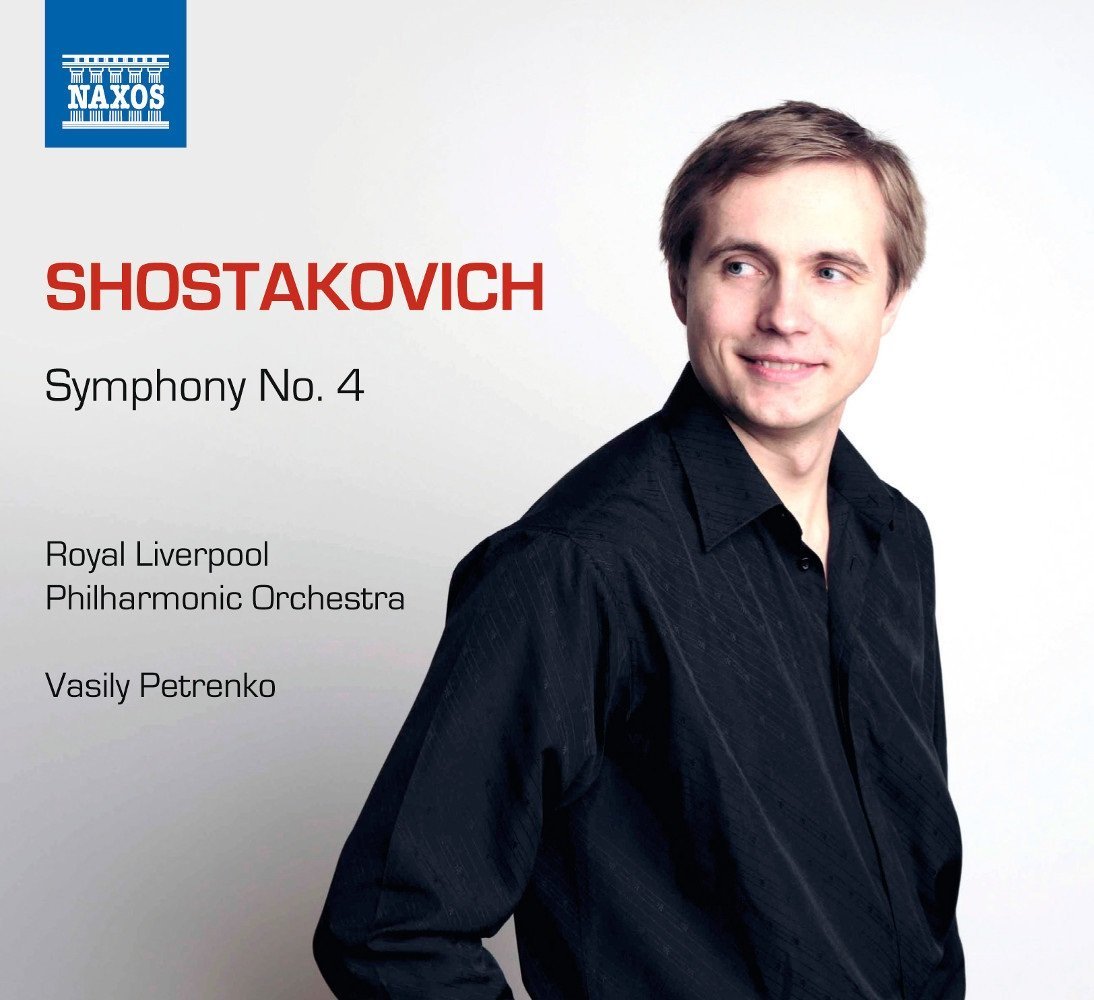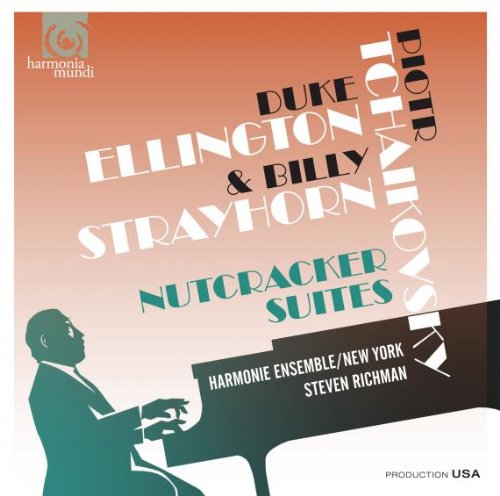Classical CDs Weekly: Brahms, Shostakovich, Tchaikovsky | reviews, news & interviews
Classical CDs Weekly: Brahms, Shostakovich, Tchaikovsky
Classical CDs Weekly: Brahms, Shostakovich, Tchaikovsky
Romantic orchestral music, a bleak Soviet symphony and a jazzy ballet reinvention


There’s a glut of Brahms symphonies on disc this autumn, with live recordings from Valery Gergiev and a new Leipzig cycle on Decca from Riccardo Chailly. As an appetizer, you could do far worse than to investigate this handsomely recorded, well performed Telarc set. Conductor John Axelrod believes that each of Brahms’s four symphonies has a distinct character, all directly inspired by his unrequited love for Clara Schumann. Arguing that each work reflects a different aspect of Clara’s personality seems a step too far – Brahms 2 is much more than a bucolic, pastoral idyll, and no 4 is not just a gruff E minor rant. Axelrod has accompanied each symphony with a set of Clara Schumann lieder, chosen to match what he feels is the prevailing mood. Having different voices to sing each set is an inspired touch – Indra Thomas is superb in the set accompanying Symphony no 4, and Nicole Cabell’s lighter tone suits the warmer cast of the songs following no 2. But how frustrating not to have the texts handy - they can be downloaded, but who wants to listen to a CD while staring at a computer screen?
But don’t be put off – the two symphonies are beautifully done. The Fourth is shrewdly paced and beautifully coloured, the Milan orchestra never sounding too dark and murky. It’s easy to underestimate the modernity of this work, its textures veering from fruity richness to parched austerity. Axelrod nails the passage leading to the first movement recapitulation, the material thinning out before the main theme’s spectral reprise. Rarely has the last movement’s opening chorale sounded so organ-like, and the glowering final pages have plenty of energy. It’s a weighty work, but it shouldn’t be a depressing one. No 2’s grave slow movement is sublime, and the subsequent lightening of mood skillfully judged. Well worth investigating.

The opening tempo marking, Allegretto poco moderato, suggests that we’re about to hear something light, witty, elegant. No chance – this pulverizing performance of Shostakovich’s ill-starred Symphony no 4 is like being kicked in the face. In a good way. Famously, its composer withdrew the work shortly after rehearsals began in 1936, and it wasn’t performed until 1961. There’s a good quote in Richard Whitehouse’s sleeve note; Shostakovich, talking after an early performance of his acclaimed th Symphony, remarked that “I finished the symphony fortissimo and in the major… I wonder what everyone would be saying if I had finished it pianissimo and in the minor?” The Fourth’s unsettling whisper of a close can pack a devastating punch, and Vasily Petrenko’s new version is as good as any around. The Royal Liverpool Philharmonic play out of their skins – everything’s secure, but nothing sounds glib or slick. I’m thinking of the first movement’s roaring lower brass, or the extraordinary, breathless string fugato. The lengthy cor anglais solo near the movement’s coda is stark and lonely, and the sudden orchestral flareup seconds before the close is wonderfully sardonic.
Petrenko’s percussionists make the Scherzo’s eerie fade sound effortless, but it’s Petrenko’s Finale which really stuns. Shostakovich’s nods to Mahler are everywhere – the introductory funeral march is terrific, as is the raucous, unsettling circus music which follows. It’s funny, but leaves a bitter taste. All culminates in one of the loudest perorations imaginable and the most emotionally devastating of symphonic fadeouts, replete with a twisted reference to the major-minor triad motif heard in Mahler 6. Petrenko brings unusual coherence to the movement; it sounds like a long, single take. Unmissable.

Steven Richman’s Harmonie Ensemble recorded one of the greatest ever Gershwin discs a few years ago. This brilliant follow-up combines Tchaikovsky’s Nutcracker Suite with a neglected revamp concocted in 1960 by Duke Ellington and his long-time collaborator and arranger Billy Strayhorn. Strayhorn became a member of Ellington’s band after meeting the great man in the late 1930s, the Duke later admitting that "Billy Strayhorn was my right arm, my left arm, all the eyes in the back of my head, my brain waves in his head, and his in mine." The Ellington/Strayhorn Nutcracker is sublime, and this recreation is a thing of wonder, sounding as if it could have been recorded in, er, 1960, but with better sonics. Tchaikovsky’s original is reinvented with staggering cheek and flair. Tempi are stretched. Waltzes become foxtrots. Reedy wind sonorities emphasise the original suite’s harmonic boldness, and everything is underpinned by Hassan Shakur’s emphatic bass playing.
Dance of the Sugar Plum Fairy becomes Sugar Rum Cherry, celeste replaced by a pair of saxophones. The suite closes with the Arabian Dance revamped as the Arabesque Cookie, bouncing along under an insistent percussion riff and with some classy muted brass. All fantastic, and the results never detract from the magnificence of Tchaikovsky’s original. Which occupies the first half of this disc. It’s played here by a more conventional orchestral incarnation of the Harmonie Ensemble, here sounding like the best pit orchestra you’ve ever heard. Listen to that bassoon line chugging away underneath the Chinese Dance, or the tight brass in the March. Fantastic fun, and nice sleeve art too.
Buy
Explore topics
Share this article
The future of Arts Journalism
You can stop theartsdesk.com closing!
We urgently need financing to survive. Our fundraising drive has thus far raised £49,000 but we need to reach £100,000 or we will be forced to close. Please contribute here: https://gofund.me/c3f6033d
And if you can forward this information to anyone who might assist, we’d be grateful.

Subscribe to theartsdesk.com
Thank you for continuing to read our work on theartsdesk.com. For unlimited access to every article in its entirety, including our archive of more than 15,000 pieces, we're asking for £5 per month or £40 per year. We feel it's a very good deal, and hope you do too.
To take a subscription now simply click here.
And if you're looking for that extra gift for a friend or family member, why not treat them to a theartsdesk.com gift subscription?
more Classical music
 Jansen, LSO, Pappano, Barbican review - profound and bracing emotional workouts
Great soloist, conductor and orchestra take Britten and Shostakovich to the edge
Jansen, LSO, Pappano, Barbican review - profound and bracing emotional workouts
Great soloist, conductor and orchestra take Britten and Shostakovich to the edge
 Jakub Hrůša and Friends in Concert, Royal Opera review - fleshcreep in two uneven halves
Bartók kept short, and a sprawling Dvořák choral ballad done as well as it could be
Jakub Hrůša and Friends in Concert, Royal Opera review - fleshcreep in two uneven halves
Bartók kept short, and a sprawling Dvořák choral ballad done as well as it could be
 Hadelich, BBC Philharmonic, Storgårds, Bridgewater Hall, Manchester review - youth, fate and pain
Prokofiev in the hands of a fine violinist has surely never sounded better
Hadelich, BBC Philharmonic, Storgårds, Bridgewater Hall, Manchester review - youth, fate and pain
Prokofiev in the hands of a fine violinist has surely never sounded better
 Monteverdi Choir, ORR, Heras-Casado, St Martin-in-the-Fields review - flames of joy and sorrow
First-rate soloists, choir and orchestra unite in a blazing Mozart Requiem
Monteverdi Choir, ORR, Heras-Casado, St Martin-in-the-Fields review - flames of joy and sorrow
First-rate soloists, choir and orchestra unite in a blazing Mozart Requiem
 Cho, LSO, Pappano, Barbican review - finely-focused stormy weather
Chameleonic Seong-Jin Cho is a match for the fine-tuning of the LSO’s Chief Conductor
Cho, LSO, Pappano, Barbican review - finely-focused stormy weather
Chameleonic Seong-Jin Cho is a match for the fine-tuning of the LSO’s Chief Conductor
 Classical CDs: Shrouds, silhouettes and superstition
Cello concertos, choral collections and a stunning tribute to a contemporary giant
Classical CDs: Shrouds, silhouettes and superstition
Cello concertos, choral collections and a stunning tribute to a contemporary giant
 Appl, Levickis, Wigmore Hall review - fun to the fore in cabaret and show songs
A relaxed evening of light-hearted fare, with the accordion offering unusual colours
Appl, Levickis, Wigmore Hall review - fun to the fore in cabaret and show songs
A relaxed evening of light-hearted fare, with the accordion offering unusual colours
 Lammermuir Festival 2025, Part 2 review - from the soaringly sublime to the zoologically ridiculous
Bigger than ever, and the quality remains astonishingly high
Lammermuir Festival 2025, Part 2 review - from the soaringly sublime to the zoologically ridiculous
Bigger than ever, and the quality remains astonishingly high
 BBC Proms: Ehnes, Sinfonia of London, Wilson review - aspects of love
Sensuous Ravel, and bittersweet Bernstein, on an amorous evening
BBC Proms: Ehnes, Sinfonia of London, Wilson review - aspects of love
Sensuous Ravel, and bittersweet Bernstein, on an amorous evening
 Presteigne Festival 2025 review - new music is centre stage in the Welsh Marches
Music by 30 living composers, with Eleanor Alberga topping the bill
Presteigne Festival 2025 review - new music is centre stage in the Welsh Marches
Music by 30 living composers, with Eleanor Alberga topping the bill
 Lammermuir Festival 2025 review - music with soul from the heart of East Lothian
Baroque splendour, and chamber-ensemble drama, amid history-haunted lands
Lammermuir Festival 2025 review - music with soul from the heart of East Lothian
Baroque splendour, and chamber-ensemble drama, amid history-haunted lands
 BBC Proms: Steinbacher, RPO, Petrenko / Sternath, BBCSO, Oramo review - double-bill mixed bag
Young pianist shines in Grieg but Bliss’s portentous cantata disappoints
BBC Proms: Steinbacher, RPO, Petrenko / Sternath, BBCSO, Oramo review - double-bill mixed bag
Young pianist shines in Grieg but Bliss’s portentous cantata disappoints

Add comment